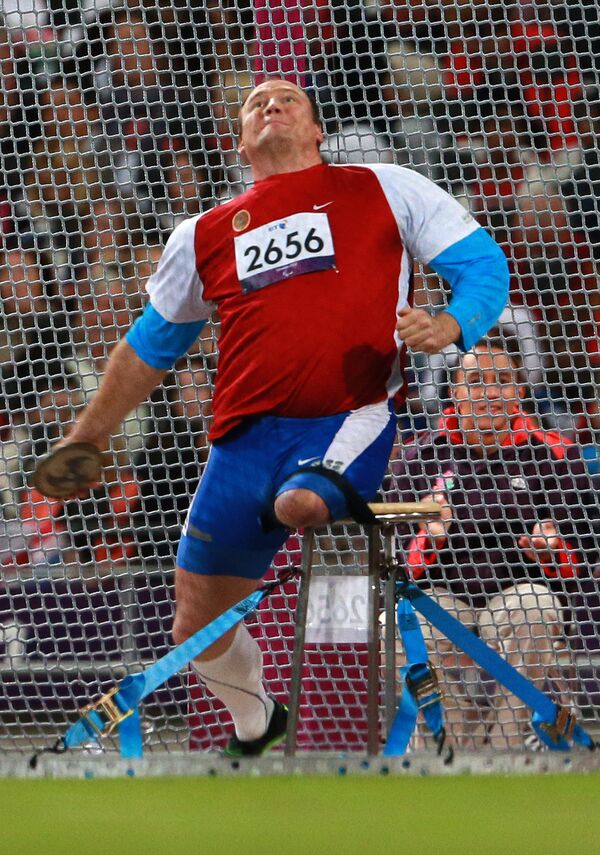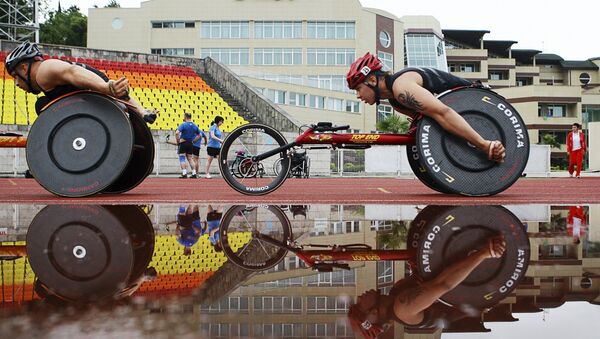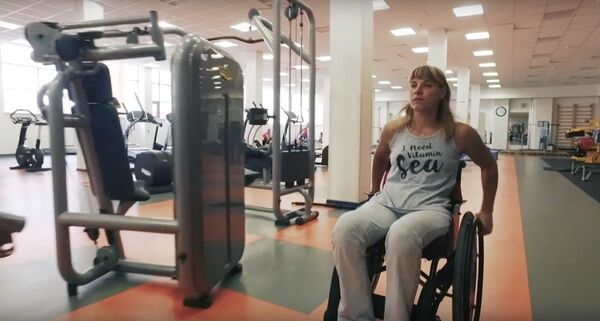The Court of Arbitration for Sport (CAS) in Rio de Janeiro has scheduled the appeal of Russian paralympians for Monday and is soon to announce whether their ban from the Rio Paralympics will be overturned.
Russian media has launched a nationwide support campaign under the hashtag #despite (#вопреки in Russian).
Российские СМИ запустили проект в поддержку паралимпийцев https://t.co/B4uHBCzAI4 #вопреки #despite pic.twitter.com/hpbwKkKaKN
— Sputnik Азербайджан (@SputnikAze) 22 августа 2016 г.
The hashtag stands for finding strength and giving your best, despite your circumstances, pain and despair.
Meanwhile the sportsmen have their stories to the camera, explaining how the sport has given them a second life.
Russian paralympian Elena Gorlova tells her story of pain, fighting, and victory.
Rio 2016 Olympic Games hopeful asks the President of International Paralympic Committee Sir Philip Craven why he decided to deprive the Russian paralympians of their life-long dream.
An unfortunate dive turned the whole life of 35-year-old upside down. She broke a vertebra in her neck and was almost completely paralyzed.
But she started fighting, and managed to get into a wheelchair despite her doctors’ disbelief.
“I live for sports, I breathe for sports. I never supported athletes who use doping,” she says.
Elena Gorlova addresses the International Paralympic Committee head, Philip Craven.
“Mr. Craven, please answer just one question. You’re in a wheelchair, I’m in a wheelchair. We understand each other better than anybody else. Why, and for what [reason], are you depriving us of our dream to take part in the Paralympic Games?”
Elena Gorlova, was set to compete in the discus and kernel throwing events.
“Frankly, I do not understand the officials who made such a harsh decision,” said, Russian paralympian Alexey Ashapatov, expressing his shock at the decision made by the International Paralympic Committee.
But he, like many other paralympians, is not the kind of a person to give up.

“We will work even harder to show what we can do and even more.”
Among other athletes whose video is available online are:
Ekaterina Potapova, discus and hammer.
“Disabled people are trying so hard to go beyond their limitations, get out of their confines… And then they are being humiliated like this – it is just not fair,” she said plainly.
Irina Vertinskaya, javelin.
Victoria Boikova, wheelchair fencing.
Roman Fedyaev, wheelchair fencing.
Denis Tarasov, swimming.
#despite hashtag stands for finding strength and giving your best, despite circumstances, pain and despair #вопреки pic.twitter.com/qqh8hEfKNA
— ГК РФ в Женеве (@RusConsulGen) 22 августа 2016 г.
Two weeks ago, Gorlova’s dreams were shattered after the International Paralympic Committee (IPC) confirmed a total ban on Russians competing in September’s event, after a recommendation from the World Anti-Doping Agency (WADA).
The suspension followed a WADA report, commissioned by the Canadian lawyer Richard McLaren in July, where he alleged that a widespread state-sponsored doping program amongst Russian athletes existed.



